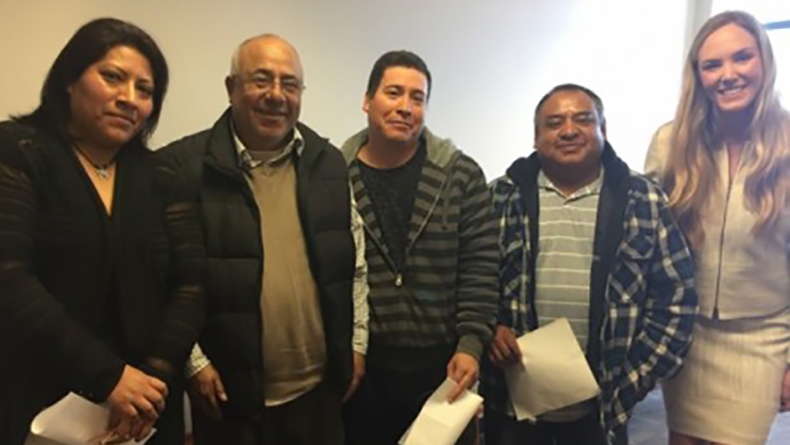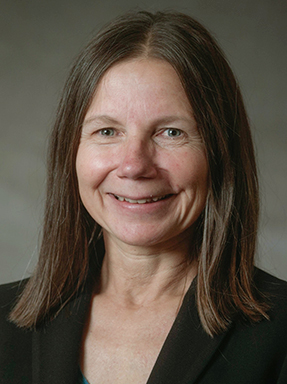Civil Litigation Clinic
Fall 2025: Professor Tamara Kuennen
Students participating in the Civil Litigation Clinic (CLC) help low-income clients work through civil controversies in a variety of areas, including housing (eviction defense and termination of subsidies), domestic violence (civil protection orders) and employment (discrimination and wage and hour litigation). In addition to integrating legal theory and practice, students work with community groups to identify and address systemic legal issues.
The model of the Civil Litigation Clinic is based on student self-direction and community outreach. Because of this focus, students have a great deal of input into and ability to shape their clinical experience. CLC cases involve little pre-trial discovery and therefore focuses on trial skills. The speed with which the cases proceed to trial (generally two to four weeks) affords students the opportunity to handle several cases in their entirety, including conducting the initial client interview and all factual investigation, developing a case theory and an opening statement, closing argument, direct and cross-examination of all witnesses, and conducting the trials themselves.
See the clinic flyer below for information on prerequisites, required classes and more.
- Read the CLC Informational Flyer
- Professor Tamara Kuennon Named CBA Pro Bono Stars 2021
- RadioEd podcast featuring Professor Tammy Kuennen: The #FreeBritney Movement: W…
-
Community Projects
In order to meet the community outreach goal of the Civil Litigation Clinic, students and faculty created community projects. The projects have varied through the years as the needs of our client community has changed and the interest of students shifted. Below are the Civil Litigation Clinic projects.
- Warranty of Habitability Legislation
- Preservation of Affordable Housing Project
- Civil Access Pilot Project
Past Community Projects
Warranty of Habitability Legislation
The clinic was approached by a former state legislator to get involved in legislative advocacy to change the landlord/tenant code in Colorado. At the time, Colorado was one of only a few states in the country that did not have a state warranty of habitability, although one has subsequently been enacted. After working on various cases involving clients living in substandard housing, it became apparent that the need existed for a warranty of habitability. In recognition of this need, students worked with a former state legislator and a coalition formed by the then-Senate Majority Leader to propose and advocate for passage of a state warranty of habitability.
Students first surveyed each state to determine whether these states had a common law or a statutory warranty of habitability provision. This information was then compiled into a report that detailed the scope of each state’s warranty of habitability. Students then worked with coalition members on the best legislative strategy for introduction of the bill. Based on advice from the Senate Majority Leader, we waited until the end of the session to introduce the bill. After the bill was introduced, students met with lobbyists for the landlord association and tried to work out a compromise. A compromise was never reached. Students then testified on the bill when it was heard in committee. During the hearing each senator was presented with a copy of the students’ report. Despite these efforts, the legislation was voted down in committee.
Preservation of Affordable Housing Project
In the Denver metro area there is an increasing number of landlords who have long term renewable contracts with the Department of Housing and Urban Development (HUD) to provide low income housing through a program known as Project-Based Section 8. The typical term for these renewable contacts with HUD is twenty-five years. In the last few years, a number of these contracts were scheduled to expire. At the expiration, landlords have the option of opting out of the HUD project-based program and putting the housing on the private market.
To address the potential loss of affordable housing, a coalition of community organizations and attorneys including the University of Denver Student Law Office, Save Our Section 8 Coalition, Community Resource Center, and Colorado Legal Services formed the Section 8 Preservation Project. The goal of the project was to preserve as many of the project-based units as possible to ensure the continuing availability of affordable housing for low income families.
In order to inform the group, we first met with groups of residents who were concerned about their landlord’s refusal to renew the HUD contract. Students then helped organize a training with a lawyer from the National Housing Law Center in California to educate our group and the tenants. We also went door to door at various impacted housing projects to talk to tenants about the problem. The group decided to focus part of its resources on one project-based unit in Adams County. We started by organizing a meeting with the head of the Regional HUD Office in Denver. At this meeting we attempted to persuade the agency to maintain the project based unit. When it became apparent that the owner and HUD were not going to renew the contract the students began to work on a variety of options including: the formation of a partnership between non-profit groups and private investors to purchase at risk properties; investigation of possible litigation strategies, and building relationships with legislators to lobby for policy changes.
Economic Justice for Survivors of Domestic Violence Project
In conjunction with a national law office that advocates on behalf of survivors of domestic violence and sexual assault, DU students have begun (in 2016) a public education project. Members of the Denver community who work closely with survivors will provide guidance and brainstorm with students the meaning and importance of economic justice, and how to most effectively conduct an education campaign in the next year. Members of Colorado’s Coalition Against Domestic Violence, Coalition Against Sexual Assault, Confidentiality Program and other key players in the community, including judges and lawyers who represent survivors, will collaborate with students on this Project, and students will prepare and deliver presentations at key community organizations.
News
Contact
Clinical Programs - Student Law Office
-
law-slo@du.edu
-
303.871.6133
-
Sturm College of Law - Ricketson Law Building
2255 E. Evans Avenue
Denver, CO 80208






